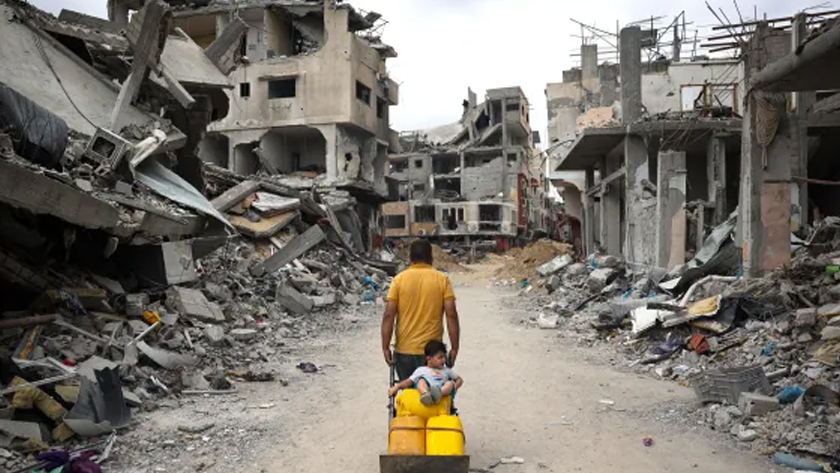Nine Months of Conflict: The Aftermath of War on the Gaza Strip
The protracted conflict between Israel and Gaza, which began on October 7, 2023, has had devastating consequences, profoundly reshaping the region’s socio-political landscape. As the war enters its ninth month, the humanitarian toll and military outcomes reveal a complex and tragic scenario. Here we explore some significant repercussions.
Humanitarian Crisis and Allegations of Genocide
The conflict has exacted a horrific human toll on the Gaza Strip. Reports indicate that over 37,800 Palestinians, predominantly women and children, have lost their lives. An additional 96,900 individuals have suffered injuries. According to estimates, Israel’s military campaign has involved approximately 40,000 troops, resulting in the displacement of 80 percent of Gaza’s population. The scale of destruction is staggering, with more than half of Gaza’s buildings damaged and about 70,000 tons of bombs dropped on the Strip.
The deteriorating living conditions in Gaza are equally alarming. Residents face severe shortages of food, clean water, medicine, and fuel. Various international bodies and countries have labeled Israel’s actions as genocide. Foreign Affairs magazine has detailed the extent of destruction and the enormity of human suffering, highlighting the significant challenges faced by the international community in addressing these humanitarian crises.
The Resilience of Hamas
One of Israel’s declared objectives in this conflict was to dismantle the Palestinian resistance group Hamas. However, despite extensive military operations, this goal remains unachieved. According to assessments published by the Wall Street Journal based on US intelligence, Hamas retains its operational capabilities and continues to engage Israeli forces directly. The group’s resilience has, in fact, bolstered its standing among Palestinians.
Further analysis from Foreign Affairs suggests that Hamas’ influence has grown, especially following Operation Al-Aqsa Flood on October 7, 2023. This increased support indicates that Israel’s efforts may have inadvertently strengthened Hamas’ position rather than weakening it.
Exhaustion Among Israeli Troops
Another notable consequence of the conflict is the fatigue and weariness among Israeli troops. Reports from commanders of four military battalions stationed in Gaza point to significant exhaustion after nine months of continuous warfare. Despite the Israeli military’s recognized strength and advanced intelligence capabilities, the prolonged conflict has strained its personnel and resources without yielding decisive outcomes.
International Community’s Inaction
The international community’s failure to curb the violence has become a defining feature of this conflict. Despite numerous calls for intervention, the support from the United States for Israel has overshadowed efforts to hold the Israeli regime accountable for alleged war crimes. Egyptian President Abdel Fattah al-Sisi has criticized the global community for its inaction, labeling it a betrayal of human conscience as the suffering in Gaza continues unchecked.
Palestinian Resistance and Fortitude
Despite the relentless assault, the Palestinian resistance has not faltered. The determination among the people of Gaza and their support for resistance movements remains unbroken. Akef Al-Masri, General Commissioner of the Coalition of Tribes and Families of the Gaza Strip, stated that Netanyahu and his administration have failed to undermine the Palestinian quest for freedom and the re-establishment of an independent state. The resilience of the Palestinian population continues to be a unifying force against external pressures and internal divisions.
Conclusion
Nine months of intense conflict have left an indelible mark on Gaza and its people. The humanitarian crisis, the durability of Hamas, the fatigue among Israeli troops, the international community’s inaction, and the unwavering resistance of the Palestinian people all contribute to the complex and ongoing narrative of this tragic chapter. As the conflict persists, the need for a comprehensive and compassionate resolution becomes ever more pressing.
Read More:
